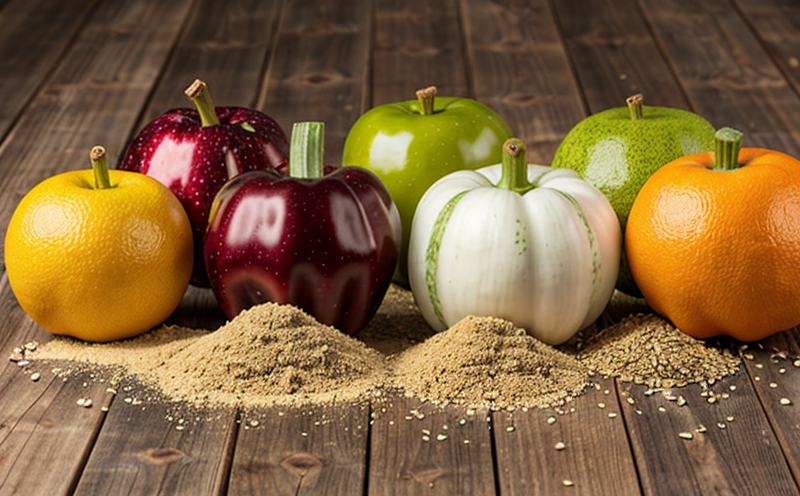EN 14189 Microbial Contamination Testing in Natural Mineral Waters for Produce Washing
In the realm of food safety and quality assurance, ensuring that produce is free from microbial contamination is paramount. The European Standard EN 14189 outlines a comprehensive methodology to assess whether natural mineral waters used in washing fruits, vegetables, and grains are suitable for this purpose.
The standard is particularly relevant as it addresses the potential risks of microbial contamination during the washing process of produce, which can lead to cross-contamination if not controlled properly. This contamination can have serious implications on public health, especially when dealing with ready-to-eat foods. The EN 14189 protocol ensures that water used for washing is safe and does not introduce new pathogens into the product.
The testing procedure involves several critical steps. First, the mineral water sample must be collected under strict aseptic conditions to avoid contamination. Then, it undergoes thorough microbiological analysis using culture-based and molecular detection methods. Culture-based methods help in identifying specific bacterial species, while PCR (Polymerase Chain Reaction) is used for rapid identification of potential pathogens.
The acceptance criteria are stringent and designed to protect public health. The standard specifies limits on various parameters such as total coliforms, faecal coliforms, E. coli, and other pathogenic indicators. Compliance with these limits ensures that the mineral water meets safety standards required for food washing applications.
For quality managers and compliance officers, understanding this standard is crucial to ensure regulatory compliance and maintain a high level of product safety. This testing protocol helps in identifying potential risks early on, allowing for corrective actions before they escalate into public health issues.
R&D engineers can leverage the insights from EN 14189 to innovate safer washing processes that minimize microbial contamination while enhancing efficiency. Procurement teams, too, benefit by ensuring they source mineral waters that meet these stringent standards, thereby protecting their brand reputation and customer trust.
In summary, EN 14189 serves as a critical tool in the food safety arsenal, providing a robust framework for assessing natural mineral water quality used in produce washing. Its implementation ensures not only compliance with international regulations but also contributes to safer food handling practices worldwide.
Industry Applications
- Fruit and vegetable producers who use natural mineral waters in their washing processes.
- Packaging companies that deal with produce washed in these waters.
- Retailers who source ready-to-eat produce from suppliers using compliant washing methods.
- Manufacturers of processed foods that incorporate washed fruits, vegetables, or grains into their products.
International Acceptance and Recognition
EN 14189 has received widespread acceptance in Europe and is increasingly recognized globally. Many countries have adopted this standard as part of their food safety protocols, recognizing its importance in preventing microbial contamination during produce washing.
The European Food Safety Authority (EFSA) and World Health Organization (WHO) recommend compliance with EN 14189 to ensure that natural mineral waters used for washing are safe. This recognition underscores the standard's role in maintaining public health standards across different regions.
Compliance with this standard is not only a legal requirement but also an essential measure to protect consumers from potential health risks associated with microbial contamination. Many food safety certification bodies include EN 14189 as part of their comprehensive testing protocols, further highlighting its importance in the industry.
Use Cases and Application Examples
The application of EN 14189 is broad and includes various scenarios where natural mineral waters are used for produce washing. Here are a few examples:
- Fruit Washing Lines: In facilities that process apples, oranges, and other fruits, ensuring the water used in washing meets the standards of EN 14189 is crucial to prevent cross-contamination.
- Vegetable Processing Plants: Leafy greens like spinach and lettuce benefit greatly from this standard as it minimizes the risk of introducing harmful bacteria into the final product.
- Packaging Companies: They ensure that their washing processes are compliant, thereby protecting the integrity of the packaging material and the produce inside.
- Retail Chains: By sourcing products washed in water meeting EN 14189 standards, they can confidently offer safe produce to consumers.
In each case, compliance with this standard ensures that the washing process is both effective and safe, contributing to a safer food supply chain.





